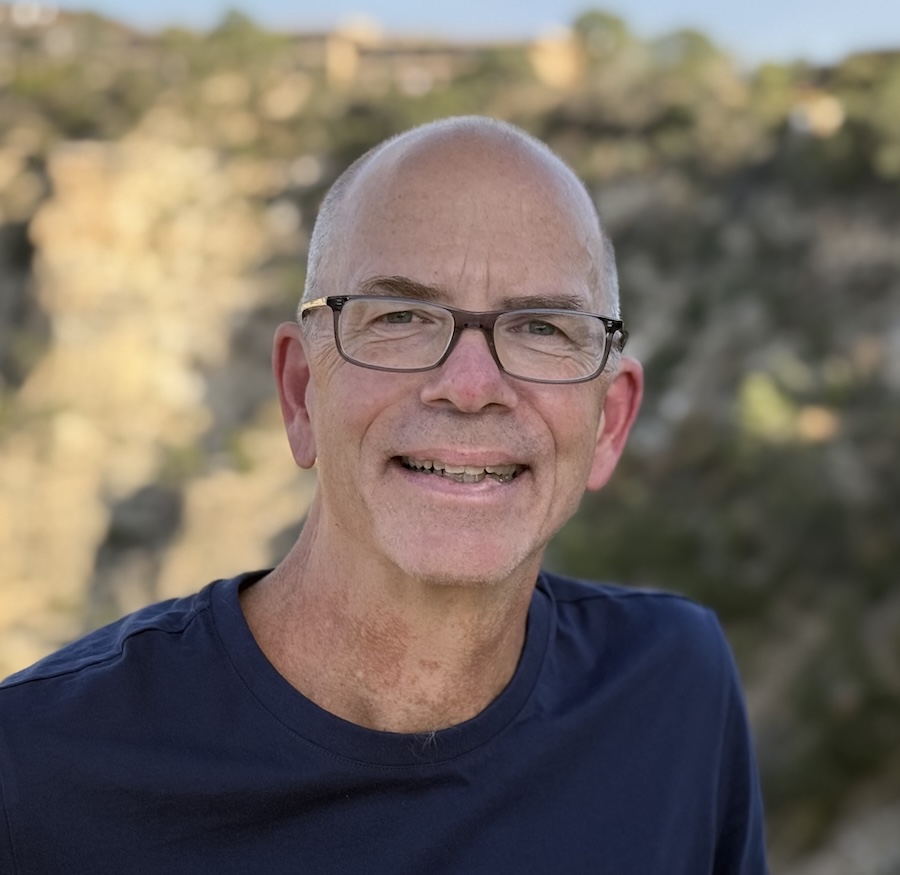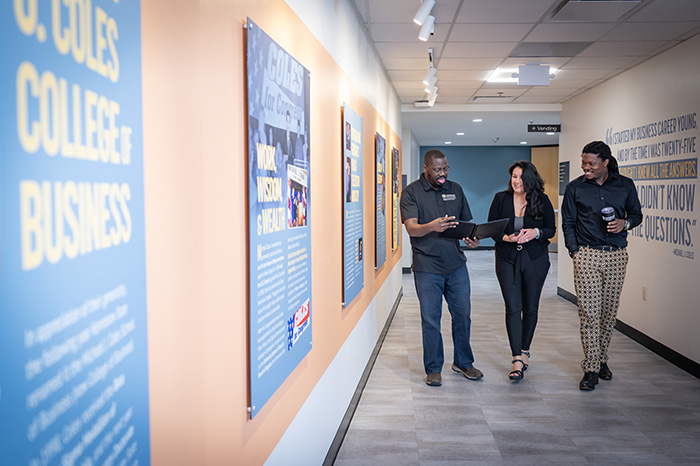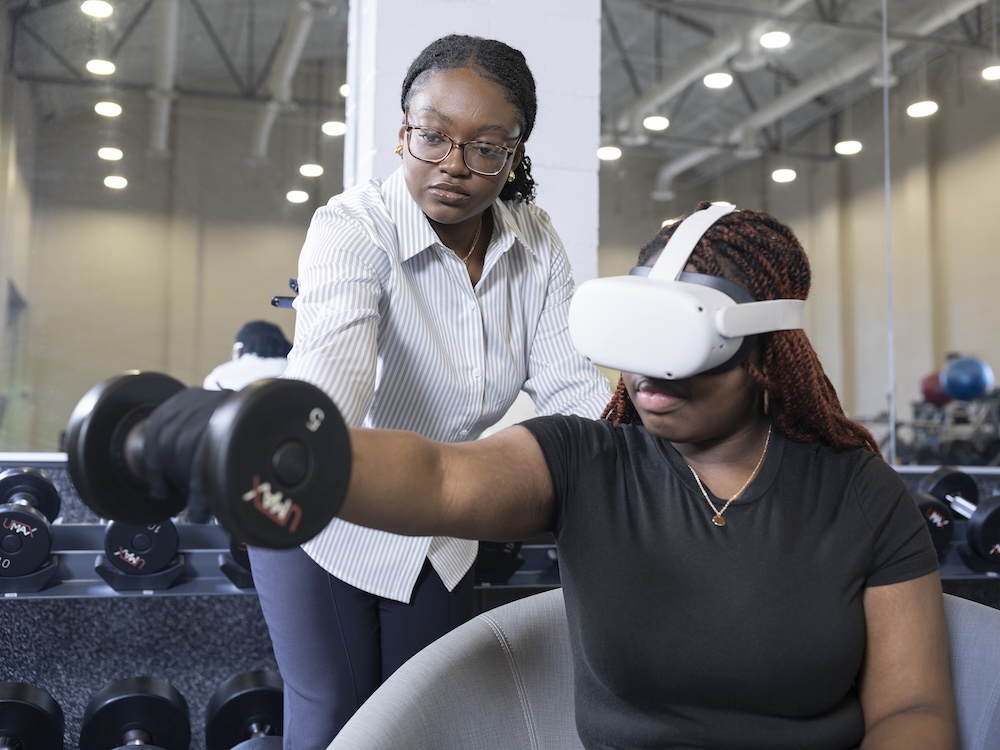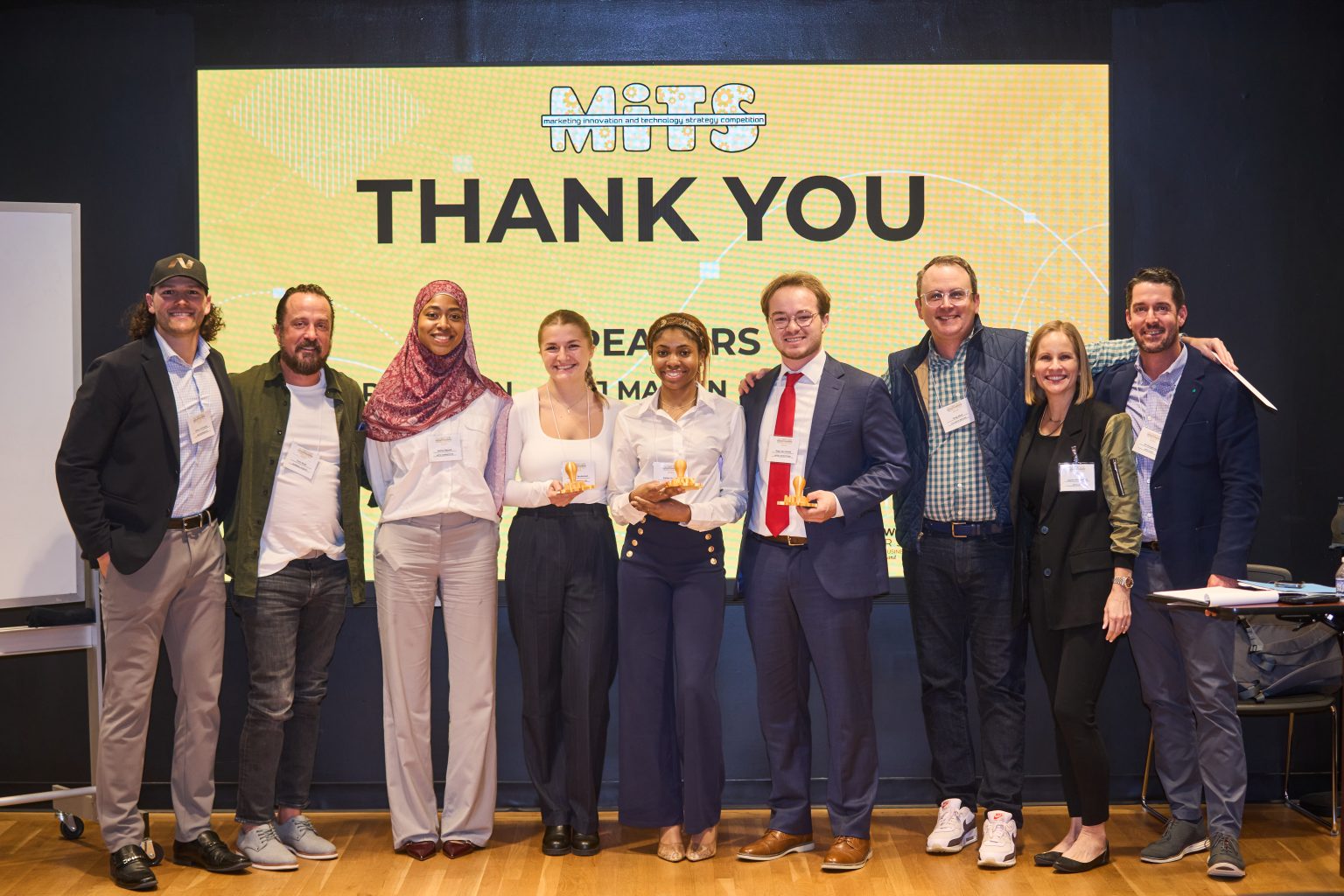
Kennesaw State's Healthcare Informatics Program Continues to Connect Students and Industry
KENNESAW, Ga. | May 26, 2021
Kennesaw State University’s innovative Master of Science in Healthcare Management program celebrates its fifth anniversary this year. With the U.S. Bureau of Labor Statistics predicting job growth in the healthcare information technology sector to outpace overall growth during the next 10 years, the program is committed to developing a diverse, knowledgeable talent pool to succeed in those jobs.
Launched in Fall 2016 to enhance Georgia’s competitiveness in the healthcare IT sector, the MSHMI program welcomed its fifth cohort in Fall 2020. Made up of IT experts and novices as well as nurses, doctors, and other healthcare professionals, the 52 students represent the largest cohort yet.

The MSHMI program marries technical skills with organizational management while creating numerous networking opportunities that bring students together with major players in healthcare such as Wellstar Health System, Piedmont, MagMutual, Cognizant, the Centers for Disease Control and Prevention, Harbin Clinic, Certera, and more.
“Our students network and engage with the leaders and executives from health systems, insurance providers, health technology companies, public health departments, and health informatics start-ups,” said program founder and executive director Sweta Sneha. “When they graduate, they have a theoretical understanding of key concepts like information security, data analytics, workflow and processes, finance and revenue management, and health administration and their impact on health outcomes. They learn to apply those concepts before ever graduating.”
As the program nears its fifth anniversary, current and former students share how their experiences with the MSHMI program have been critical to their professional success.
|
|
|
|
|
|---|---|---|---|
 |
Varun Thalla: Cohort 4 |
Varun Thalla graduates in July 2021. He is working as a graduate research assistant under Sneha in the MSHMI program, which has allowed him to help create a statewide digital healthcare services provider database for the Technology Association of Georgia, a 30,000-member nonprofit association representing technology workers in the state. Thalla has also interned with digital solution provider Cognizant since August 2020, working on a project to help patients better understand factors impacting their health outcomes. For Thalla, who has held business analytics jobs for Deloitte and Hinduja Global Solutions in India and plans to focus his career on healthcare data, the MSHMI program has been an essential step on his journey. “The opportunity to interact with key individuals in the healthcare industry as well as the MSHMI program curriculum’s blend of healthcare and informatics will aid me in achieving the goals I’ve set for myself,” he said. “The curriculum can take me far, but what’s more important is that I can transfer my knowledge into the real world.” |
|
|
|
|
|
|
|---|---|---|---|
 |
Fortune Onwuzuruike: Cohort 2 |
Alumni like Fortune Onwuzuirke demonstrate how the program’s combination of management courses, technology courses, and networking can propel a recent graduate’s career. Onwuzuruike was working as an associate security analyst for Wellstar Health System when he enrolled. While still in the program, he leveraged his newfound expertise in healthcare IT to secure a job as an information security analyst for risk and cybersecurity at Piedmont Healthcare, ultimately joining Microsoft as a security program manager in 2021. “I learned so much about healthcare project management and about the industry as a whole,” Onwuzuruike said. “I gained an understanding about how things operate and how to conduct research and study best practices. Most importantly, I learned time management. All this helped me get to the senior space I am in now.” Onwuzuruike received the 2019 Richard P. Covert Scholarship for Management Systems from the Healthcare Information and Management Systems Society, awarded each year to only four students nationally. He believes that much of the MSHMI program’s value comes from interacting with industry professionals. “Countless times Sweta gave us the chance to interact with executives, whether at conferences or other networking events,” he said. “This made me feel really comfortable when it was time to do the actual job. I already knew how to answer questions, be knowledgeable, and control the room.” |
|
|
|
|
|
|---|---|---|---|
 |
Stacey Hayes: Cohort 3 |
Although many people entering the MSHMI program are in the early stages of their careers, others, like Stacey Hayes, are more established but want to remain current and take on new responsibilities. Hayes has worked for one of the world’s largest pharmaceutical companies for the last 20 years. Her current role is senior immunology account executive, which requires her to coordinate directly with large health systems and private practices. With digital technology increasingly becoming key to those interactions, Hayes enrolled in the MSHMI program to improve her understanding of technology’s role in healthcare. “The program led me to understand a different perspective on healthcare,” she said. “It allowed me to see the value of the data that is collected and how it can be utilized to serve patients, providers, and payers as we improve the healthcare landscape and reduce costs through technology-driven improvements.” Hayes’ newfound skills have improved her ability to communicate with internal business partners and with clients. Her organization has also started assigning new projects to take advantage of her growing expertise in healthcare technology. Like Thalla and Onwuzuruike, Hayes believes one of the program’s core strengths is networking, specifically with the other members of her cohort. “The colleagues I’ve met during the program have been instrumental to my success,” she said. “Networking has really helped me expand my perspectives. As a cohort, we have all stayed close and continue to share our learnings.” |
|
|
|
|
|
|---|---|---|---|
 |
Vidya Soundararajan: Cohort 1 |
In addition to managers and information technology professionals, doctors also benefit from the skills taught in the MSHMI program. For Vidya Soundararajan, an OB/GYN at Wellstar Cobb Gynecologists, the lessons have been especially valuable during the last year. “As a medical professional who has seen firsthand how health informatics has been used in the midst of a pandemic, I realize how crucial it is to work closely with informatics to interpret the data collected from a clinical perspective,” Soundararajan said. “It is more and more important for clinicians to become involved and assist with data collection in a manner that forwards patient care.” |
The success of students like Thalla, Onwuzuruike, Hayes, and Soundararajan is not
an anomaly. Through a diverse curriculum of management and technology courses, a strong
cohort-based system promoting cooperation, and countless opportunities to network
with knowledgeable healthcare professionals, the program sets students up for success.
“The Digital Healthcare space is growing at a rate of 3.4 million jobs per year areas with the need for a robust workforce,” Sneha said. “The MSHMI program and KSU are playing a pivotal role in meeting that need. We have 150 graduates today and are only just warming up.”
-Patrick Harbin
Related Posts

Kennesaw State professor honored by American Accounting Association as 2025 Presidential Scholar

CEO Magazine Ranks Kennesaw State Executive MBA Top Program in Georgia, No. 10 in the World

Kennesaw State business student finds research niche in virtual reality

Third Annual MITS Event Showcases Creativity with Braves Collaboration














